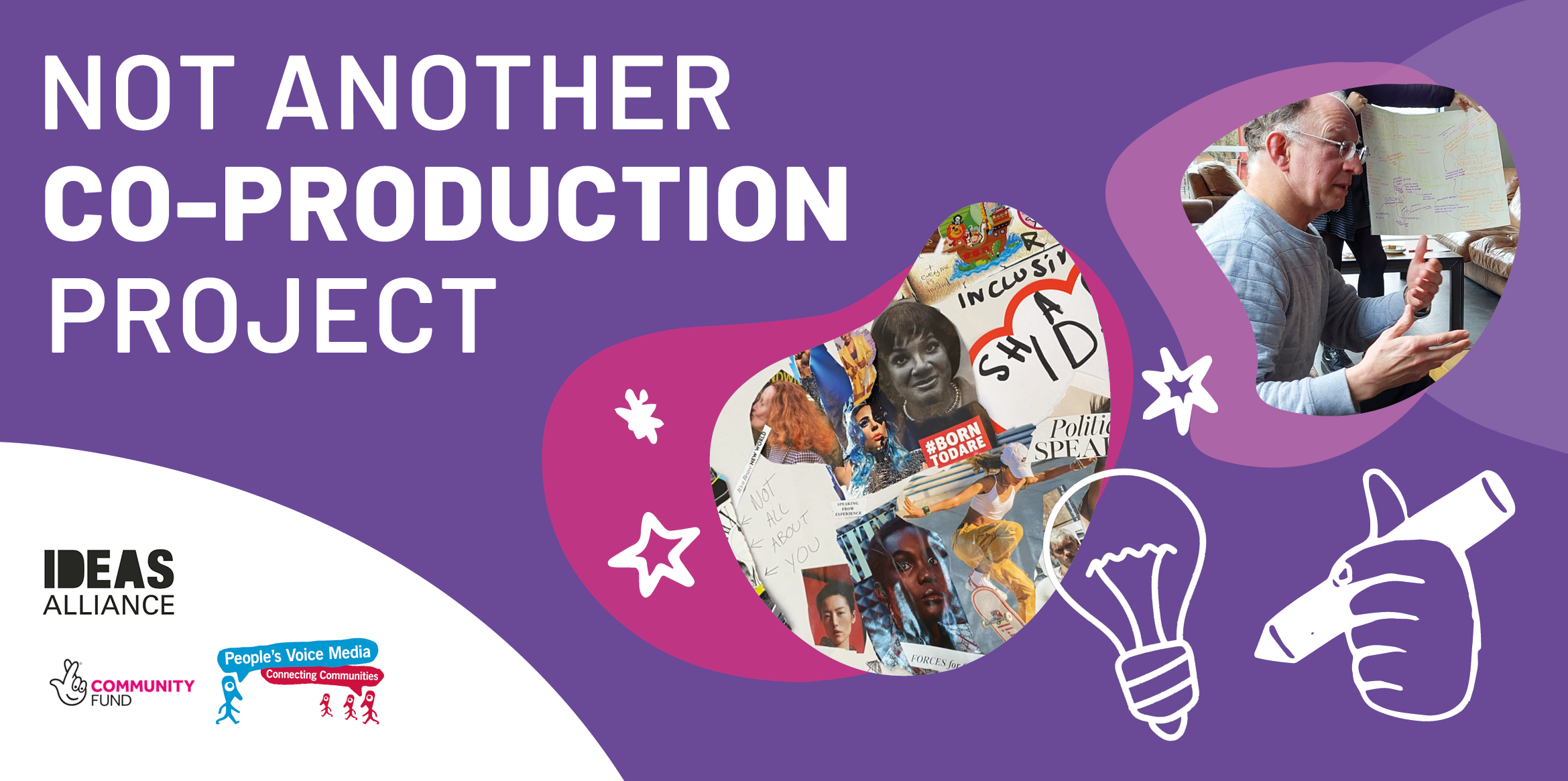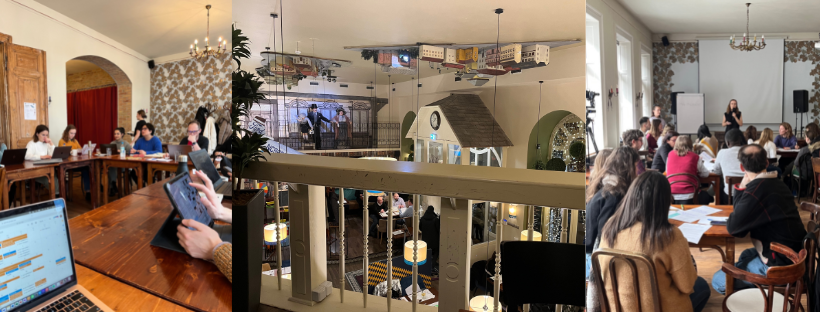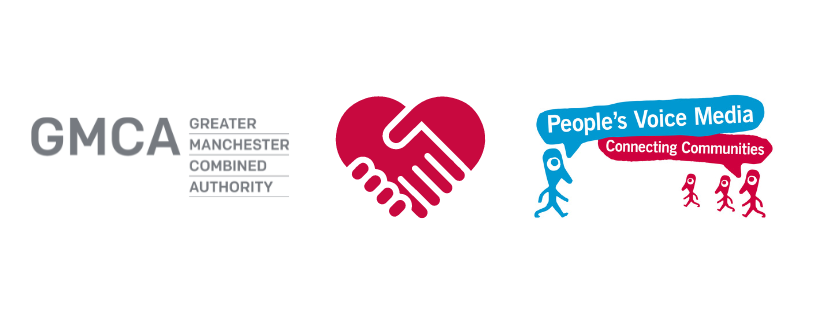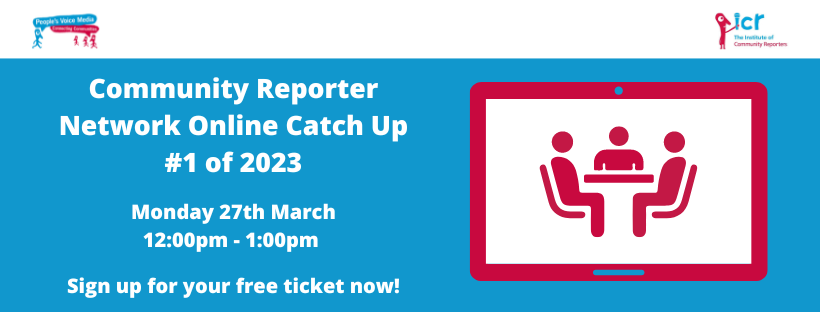COMMUNITY REPORTING SPREADING IN THE WEST MIDLANDS

Since September 2023 we’ve been working with the fabulous folk at Ideas Alliance and Curators of Change in the West Midlands as part of a Lottery funded project called – Not Another Co-Production Project. This is a 3-year project exploring how we can develop coproduction in ways that benefit local people, professionals, and organisations across England. A key aim of this work is to move co-production from a buzz word into an embedded practice within grassroots organisations across England to ensure that people have a better life.
In this second year of the project, we’ve been focusing our energies on the West Midlands and the People’s Voice Media team have been busy equipping people and organisations with Community Reporting skills to help them harness the power of lived experience stories in their work. Last Winter we delivered a series of 6 in-person workshops in Birmingham, training people in the different aspects of Community Reporting – from gathering stories to using the learning from people’s stories to effect positive social change in different community contexts. The sessions were attended by 12 people and a mixture of practical and soft skills were developed, as well as confidence-building and networking opportunities.
“I’m really enjoying every session so far, it’s given me an opportunity to really think about how we do stuff and reflect on the fact that we actually do things really well. However there are definitely areas we need to work on more which are around getting people more involved in decision making processes”
On the back of this training, one organisation has already been successful in securing 2 funding bids – whoop whoop!
To support people to use these skills in their work post-training, we set-up an initial series of small group mentoring sessions – helping people to embed what they’ve learned into their own contexts. These peer learning spaces provided help to people and organisations as they set-up their projects, and promoted the sharing the of learning and ideas. One person noted that, the sessions have “empowered me to share best practice and give examples” and another said that the sessions were “well structured and interesting – each session built on the previous one”. There are some areas of these sessions that we’d like to improve though such as running them over a longer period of time and opening them up to more people. We will be taking these ideas forward in year three as we move the project to Greater London.
More updates on this work will follow!



